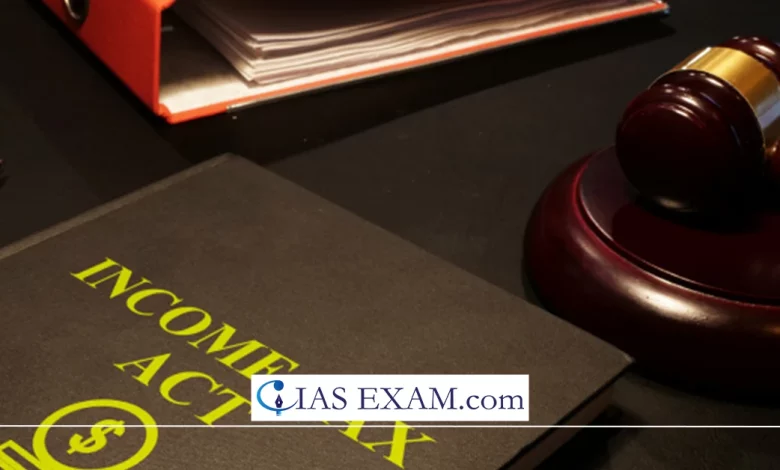Section 43b (h) of the Income Tax (IT) Act
Syllabus- Economy [GS Paper-3]

Context
In order to ensure timely payments to the Micro, Small and Medium Enterprises (MSME) sector, a new regulation – Section 43b (h) of the Income Tax (IT) Act, will be implemented from April 1.
About
- The Finance Act 2023 introduced an amendment to the IT Act by including clause (h) to Section 43B.
- This clause stipulates that payments due to UDYAN-registered MSMEs could be allowed as deduction only if the actual price was made.
- In less difficult phrases, if one doesn’t pay an MSME on time, they can not deduct that expense from their taxable incomes, doubtlessly increasing their tax liability.
- Section 43B(h) is relevant to transactions that contain the acquisition of goods or services from organisations registered under the Micro, Small and Medium Enterprises Development (MSMED) Act, 2006.
- Starting from April 1, organizations, sole proprietorships, partnerships or LLPs, are required to pay their suppliers registered as MSMEs.
- Within 45 days, if a MSME unit had a written agreement with a medium or large-scale industry for supply of components, spares, or other services or products.
- If there was no agreement, payment should be made within 15 days.
- The purpose is to inspire larger entities to prioritise their agreements with MSME counterparts, thereby promoting a better economic environment for those smaller businesses.
Benefits of Clause (h) of Section 43B
- For MSMEs:
-
-
- Smooth Payment Cycle: Section 43B(h) incentivises massive groups or entities to settle dues with MSMEs inside the particular time frame, that’s important for their (MSMEs’) sustainability and growth.
- Better Bargaining Power: The provision guarantees better bargaining power for MSMEs while negotiating payment terms with large corporations or entities.
- Reduced Disputes: Due to timely payments, potential disputes and legal wrangles, which may arise out of outstanding dues are minimised, saving time and resources for both MSMEs and larger businesses alike.
-
- For Larger Enterprises:
-
- Tax Planning: While adhering to the stipulated timelines, large enterprises or companies can claim deductions for payments supplied to MSMEs in the same year, resulting in decreased tax liabilities.
- Compliance and Transparency: IT Act Section 43B (h) promotes transparent economic practices and law adherence, promoting a responsible business environment.
- Strong MSME Ecosystem: Ensuring prompt bills to MSMEs incentivises a strong MSME environment, reaping benefits larger entities by a vibrant supply chain and ease of access to numerous sources.
Concerns Regarding the Implementation of Section 43B (h) of the IT Act
- Traders’ body (CAIT) have appealed to the Finance Minister for a deferral of the clause till April 2025, bringing up a loss of readability at the regulation’s applicability.
- The retail industry typically operates on a credit score day cycle of 90-120 days for bills, which can sometimes extend to 180 days.
- It is common for even well-regarded retailers to stick to this time-frame for settling payments.
- Therefore, the expectancy for retailers to right away alter their business models to comply with a 45-day payment cycle is incredibly unrealistic.
- The new rule has led retailers to cancel orders with MSMEs in favour of non-MSME players.
- As a result, MSME apparel manufacturers are expected to incur losses of Rs 5,000-7,000 crore within the January-March sector due to the amendment.
- This means the intervention is also negatively affecting a section of the enterprise.
- Additionally, a substantial range of retailers are considering returning unsold merchandise to the producers, thus relieving themselves of the payment obligation.
Source: The Economic Times
UPSC Prelims Practice Question
Q.Which one of the following effects of creation of black money in India has been the main cause of worry to the Government of India? (2021)
a. Diversion of resources to the purchase of real estate and investment in luxury housing.
b. Investment in unproductive activities and purchase of precious stones, jewellery, gold, etc.
c. Large donations to political parties and growth of regionalism.
d. Loss of revenue to the State Exchequer due to tax evasion
Ans: “d”





.png)



